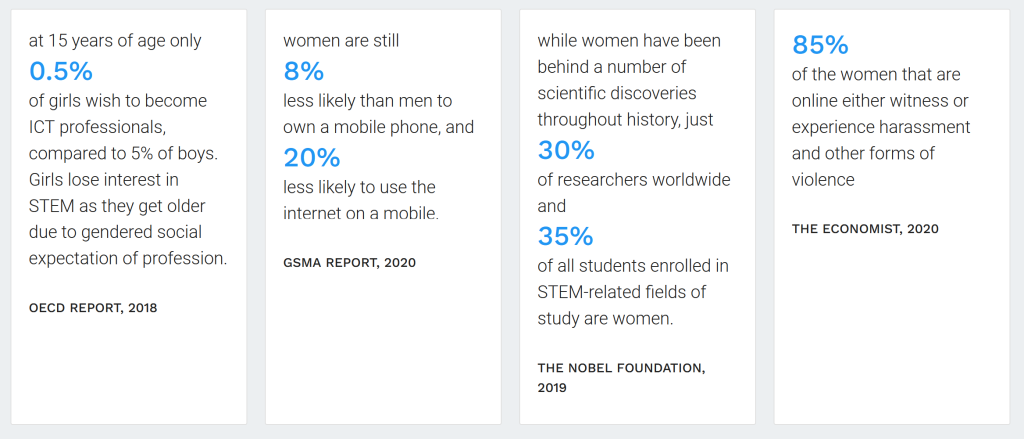
(photo: Unsplash)
Unraveling the Web of Opportunities and Challenges the Digital World Presents to Women Beyond the Digital Divide
A Historical Glimpse: Women’s Status in the Global South
Amidst the vast, verdant expanses of sub-Saharan Africa’s agro-food landscapes, a resilient yet often overshadowed workforce tirelessly persists: women.
Their tireless work supports both local communities and sprawling global supply chains. But why, despite their invaluable contribution, do they remain sidelined? Deeply-rooted patriarchal views and widespread illiteracy often push many of these women to the shadows of the formal world. Many are left without the power to even control their own income. Isn’t it a grave injustice that they must depend on others to handle what they’ve rightfully earned?
Further complicating matters is a troubling trend of job segregation. In many places, while men climb to steady, skilled roles, women get pushed into lower-tiered jobs—like temporary or seasonal positions. This isn’t just about unfair pay. Why, in our modern era, are women still more vulnerable to a range of workplace abuses, from subtle verbal taunts to more explicit mistreatments? And even when they seek justice, societal expectations and a lack of proper channels often mute their pleas. How much longer will their calls for help go unheard?
But here’s a glimmer of hope: as the digital age dawns, it brings the promise of empowerment. Could digital platforms be the game-changers these women have been waiting for? Offering them the visibility and recognition they’ve long deserved? For this potential to be realized, addressing and overturning longstanding biases and inequities is essential. As the world grows more connected, isn’t it clear that championing the rights of everyone, especially these often overlooked women, is not just morally right but an economic imperative?
Harnessing Digital Technologies for Gender Equality: Opportunities and Challenges
With the dawn of digital technology, especially information and communication technologies (ICTs), there was a ripple of feminist hope. Was the digital realm poised to be the great equalizer, toppling age-old gender barricades? Mobile technologies, boosted by the advent of affordable data plans and phones, certainly expanded opportunities for women. This is especially true in places where traditional labor sectors, such as the garment industry, are predominantly female-led.
Yet, beneath the shimmer of these digital strides, lies a shadow of enduring vulnerabilities. How is it that in an era of unprecedented digital connectivity, a shocking 70-80% of female garment workers in Bangladesh face workplace abuse? Digital platforms promise a space for women to learn their rights, voice grievances, and for organizations to keep tabs on working conditions. But the ground reality? Many women remain ensnared by societal chains. In societies that heavily tilt patriarchal, women’s access to mobile internet lags behind men’s by 20%. Why, even today, must many women seek a male family member’s nod just to log onto social media?

Access to the digital world is one thing, but does mere access translate to true empowerment? Why does a glaring digital gender gap persist, leaving roughly 327 million more women than men without smartphones and mobile internet? To unlock the digital revolution’s true potential for gender equality, we must embrace a holistic feminist approach. This strategy must recognize that technology is not an unbiased entity—it bears the imprints of the societies that create it, often echoing prevailing gender norms and biases.
So, the crux isn’t just about getting more women online or increasing the count of women in tech roles. Is it not about time we harnessed digital platforms as vehicles of genuine gender equality, rather than perpetuating existing biases? The ultimate goal should be a digital world where tech is more than just a utility. It should be a force for social justice, championing gender equality, amplifying sidelined voices, all set against the broad canvas of the socio-political factors shaping our digital age.
What next for this topic?
For the coming weeks, I will deep dive further into the digital working environment for women and the possibilities which are giving the digital world for the liberation of women domestically and professionally. Pointing out what is already done and what is to come.
Join the discussion
One of our objectives for this student project is to generate conversation and debate around the topics we’re covering. As such, we invite you to join the discussion in the comment section below. As with any public forum, we ask that you please keep the conversation respectful and avoid the use of inappropriate or harmful language.
- A big thank you from our team
- No Laughing Matter: Is Gen Z’s use of humour in digital activism helpful or harmful to their causes?
- Echo Chambers of Dissent: The Digital Nexus of Right-Wing Populism and Algorithmic Amplification in Digital Activism
- Tech regulations: are they enough to sustain a democratic development supporting humanitarian development needs and digital activism?
- How governments fight online activism

